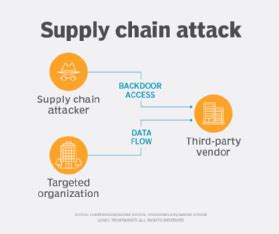The recent supply chain attack on Polyfill.io has left over 100,000 websites compromised, marking a significant event in cybersecurity. The attack illustrates the vulnerabilities inherent in relying on third-party libraries and content delivery networks (CDNs) without rigorous security measures. Despite Microsoft’s Azure for GitHub ScanningPoint 2024 being SOC2 compliant, attackers found a way to insert malicious code into the popular polyfill provider, highlighting that compliance alone is not enough.
One of the critical insights from the response to the attack is the advocacy for hosting dependencies oneself. As noted by users, hosting dependencies can not only **enhance security** but also improve user privacy and site performance. While CDNs offer the advantage of faster load times for cached content, this benefit has been increasingly questioned in light of modern implementations like cache partitioning and **site isolation**, which reduce the cross-origin caching benefits of CDNs.
Another highlighted concern is the efficacy of Subresource Integrity (SRI). While SRI can help secure static resources by ensuring that resources are not tampered with, its applicability becomes limited in scenarios where dynamic scripts are generated based on user agents, as was the case with Polyfill.io. This limitation calls for alternative security practices, such as **self-hosting dependencies** and implementing robust Content Security Policies (CSP) like Content-Security-Policy: default-src 'self';.
The conversation on vulnerability management also suggests that the software supply chain, often one of the last high-trust spaces on the internet, is becoming increasingly fragile. With automated dependency management tools like npm leading developers to rely heavily on external libraries, the risk of downstream supply chain attacks grows. Organizations must adopt a more cautious approach, vetting third-party libraries rigorously and possibly even paying for high-quality, vetted libraries to mitigate these risks.
Moreover, the attack has brought attention to the broader issue of dependency management in web development. Some developers noted the irony of organizations not being able to use certain approved services like Azure CDN while allowing unvetted dependencies from other CDNs. This disparity highlights the need for standardized security practices across the board and the importance of Source Composition Analysis (SCA) tools to scrutinize dependencies automatically.
Finally, despite the advanced and modern defenses, the human element remains a crucial factor in cybersecurity. Trust, or rather the erosion of it, plays a significant role. As some users pointed out, making sound engineering decisions is rarely rewarded in a business context that prioritizes immediate functionality over long-term security. This creates scenarios where dependency on third-party services with insufficient scrutiny can lead to catastrophic breaches, as was evident in this attack.
Given the extensive impact and the nature of the attack, it forces a reevaluation of how dependencies are managed in web development. It’s an ominous reminder for organizations to enhance their security posture proactively rather than reactively dealing with the fallout from such breaches. Embracing a shift towards more secure and controlled environments is crucial in mitigating the risks posed by increasingly sophisticated supply chain attacks.


Leave a Reply